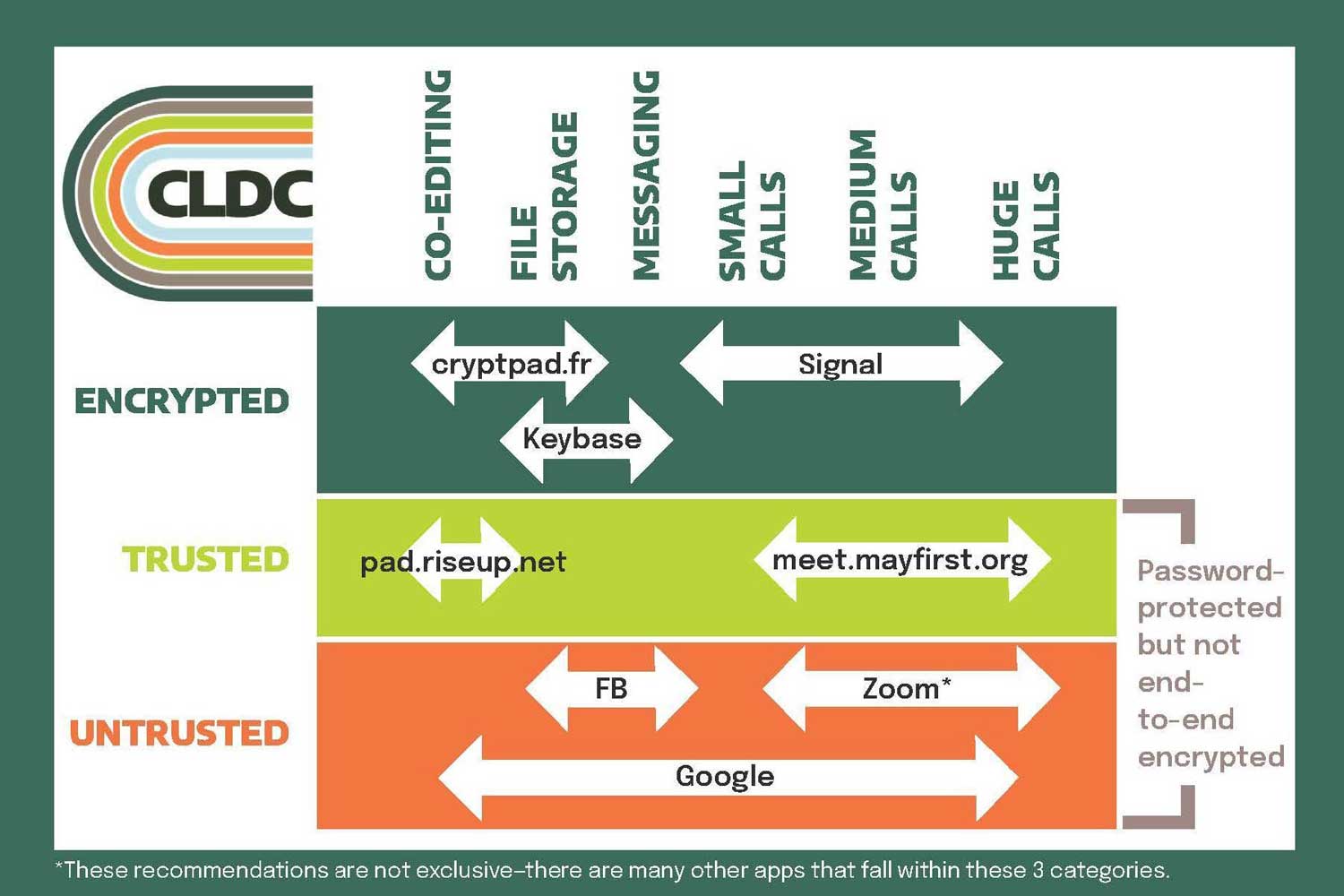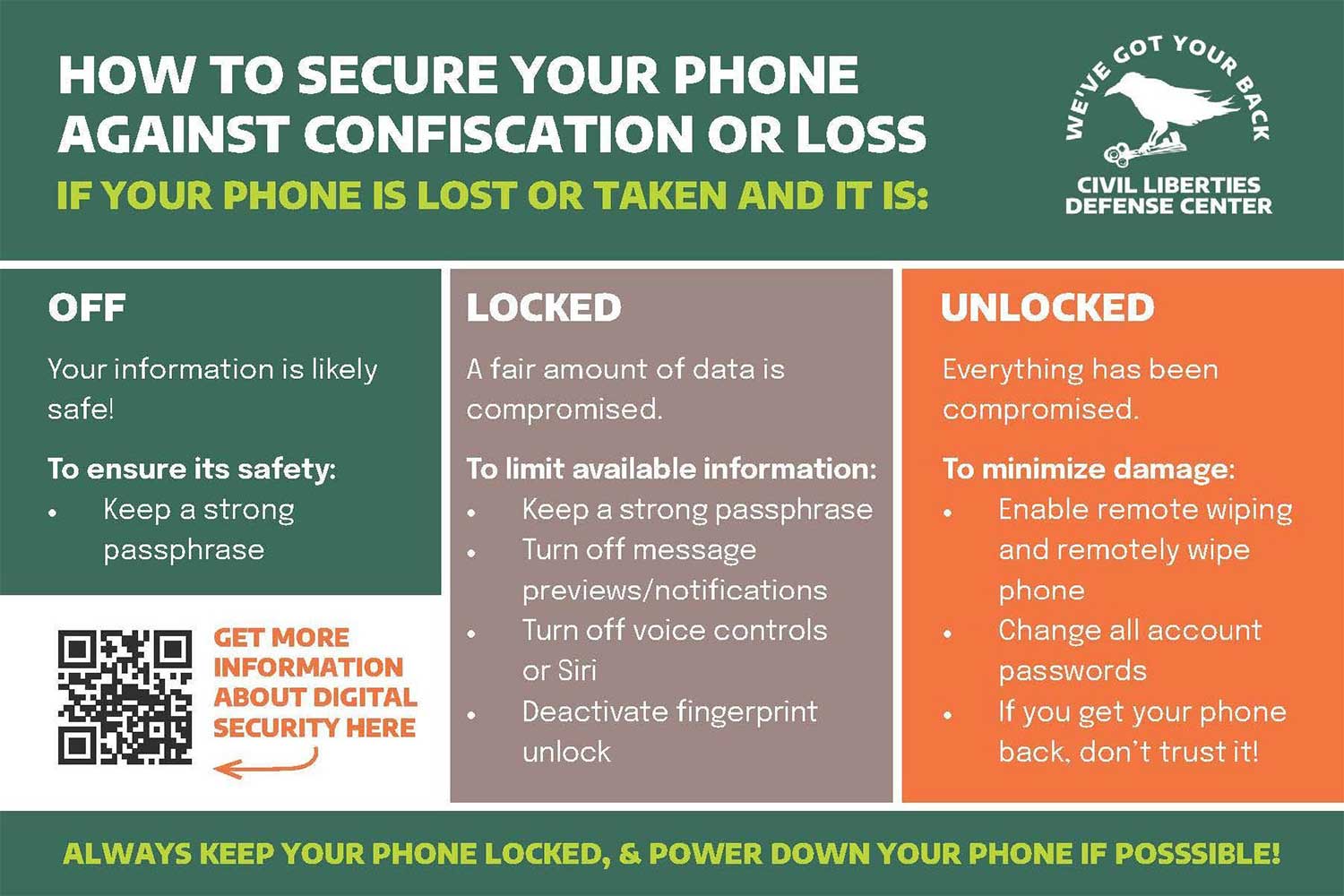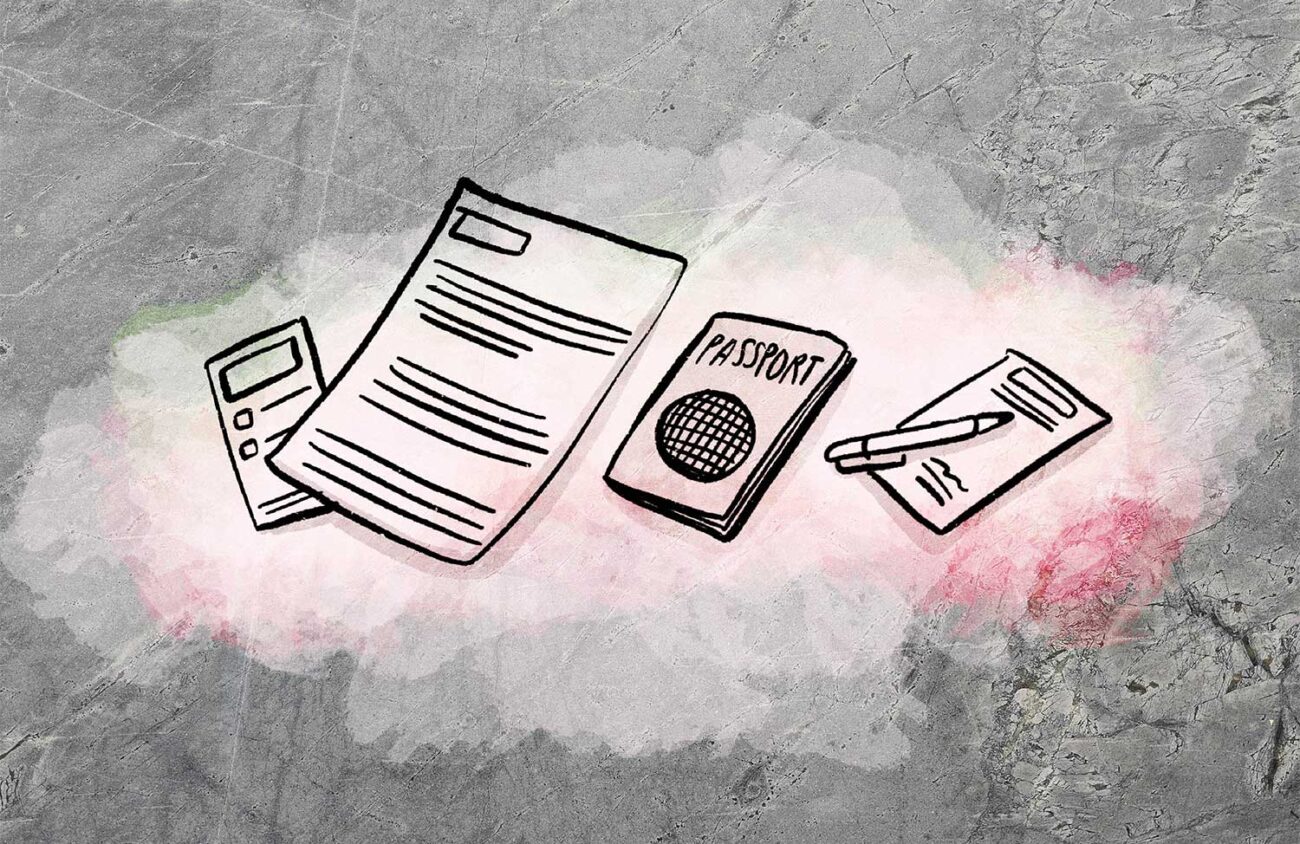By Lauren Regan and Civil Liberties Defense Center
For immigrant communities and their allies, knowing how to interact with cops or ICE (aka La Migra) can mean the difference between a safer life or detention and deportation. The team at Civil Liberties Defense Center has your back, and we’ve compiled critical resources to help people know what to say, and how to plan for a potential law enforcement or ICE interaction.
The following tools will help immigrant communities assert their rights, reduce risks and stay safer.
All of these materials — including webinar recordings, digital security guides and legal scripts — are available at CLDC.org/resources-for-immigrants-and-allies.
The Magic Words: What to Say & When
Law enforcement (“regular cops”) and ICE/La Migra (“immigration enforcement”) rely on fear tactics, misinformation and intimidation to get people to comply with their demands. This is why the following “magic words” are crucial to keeping yourself safe.
Memorize them (ideally in English), practice them and use them in any police or ICE encounters:
“Am I being detained, or am I free to go?” / “¿Estoy siendo detenido, official, o estoy libre para irme?”
“I do not consent to this search.” / “Yo no consiento a um registro.”
“I want to remain silent.” / “Yo quiero permanecer callado.”
“I want a lawyer.” / “Yo quiero un abogado.”
If ICE or the police confront you, stay calm, say these words and say nothing else.
Anything you say — seemingly innocent — can be used against you or others. If you do not repeat these words, silence may provide legal consent to search and seize your stuff if you ultimately end up in court! So be sure to voice your rights out loud.
Know the Difference: ICE vs. Police
Understanding the difference between ICE (Immigration and Customs Enforcement) and local/state police is crucial to asserting your rights correctly.
Local and State Police
Regular cops investigate state and local crimes. They do not investigate or enforce immigration laws or policies in Oregon.
Regular cops can obtain search warrants and individualized arrest warrants from a judge — including via phone. This allows them to enter your home, workplace or car without your consent or without your knowledge or presence.
If present, you always want to say “I don’t consent to this search,” even if they are going to do it anyway. An arrest warrant is for a particular person and allows cops to take them to jail.
Police can detain you for questioning if they reasonably suspect you have committed a crime or are about to commit a crime.
However, you still have the right to remain silent and should not consent to any searches.
If arrested and charged with a crime, you have the right to a lawyer to help you — including a free lawyer if you financially qualify.
The most common way undocumented community members end up in deportation is because they are arrested by regular cops for a regular crime like driving without a driver’s license or driving under the influence of intoxicants.
Once regular cops arrest them and bring them to jail, ICE may learn of their arrest and can place an “ICE hold” on the person. This means when they are released from jail on the criminal charge, ICE will take custody of them for immigration purposes and deportation proceedings may result.
Be careful when driving on the public roadways, make sure your car is road-legal (headlights work, etc.). Don’t get arrested if possible!
ICE (La Migra)
ICE cannot enter your home. You do not have to answer the door or open the door. They can’t break down the door or force entry but they can go anywhere the public would be allowed to go — a “public place” like a mall, public street or parking lot are fair game for ICE enforcement.
ICE can only obtain a judicial warrant that allows them to arrest a specific individual who is already known to ICE. But if they believe they have found other undocumented people when they come to detain the targeted person, they may be allowed to round up others at that time.
Workplace raids: ICE can only go where the public can go, so if your offices or workplace have signs saying “employees and clients only” or “no trespassing” signs, ICE can’t go there — but outdoor workers may not have those protections.
If ICE stops you at home, at work or on the streets, simply ask: “Am I being detained, or am I free to go?” and if you are free to go, walk away slowly.
If you are being detained, state: “Why am I being detained? I don’t consent, I want a lawyer,” and then say nothing else.
If you have legal status (including DACA), you must carry and produce your proof of status if asked by ICE.
Currently, if you are jailed by ICE for immigration purposes, you are not entitled to a free lawyer and may need to retain one — so have names and numbers available.
Create a safety plan to reduce harm to you, your family and community. Fill out and sign a guardianship form filled out and signed to better protect your kids if you are jailed. Consider a power of attorney form so that loved ones can help manage your stuff if you are jailed. (Both forms are on the CLDC website.)
For allies and others: You are absolutely allowed to film ICE raids and detentions and should do so if you can. Stay a reasonable distance away from agents, but it is important to document their fascist activities.
Digital Security: Protecting Yourself from Surveillance at Work and at Home
Government agencies — including ICE — monitor social media, phone records and cellphone location data to track and target individuals. Digital security is just as important as physical safety. The little snitch in your pocket (your cellphone) may be one of your biggest vulnerabilities when dealing with state repression.
CLDC has created digital security postcards with guidance on how to make safer choices when using digital devices.


Next Steps: Train the Trainer Series for Immigrants and Allies
We are excited to announce that our team is working hard to bring you a “Train the Trainer Series for Immigrants and Allies” in the near future. With this six-part training series, we hope to empower and enable immigrant leaders and community allies to share this knowledge within their own networks. However, we need your support to make it happen.
Together, we can continue to build power and resilience in the face of systemic injustice.
To find out more about the CLDC go to CLDC.org. Mailing address: 1711 Willamette Street, Suite. 301, #359 Eugene, OR 97401. Please consider contributing to this vital project. Head to CLDC.org/donate to make a contribution. Your donations will help us create a sustainable, scalable, community-led education model.
